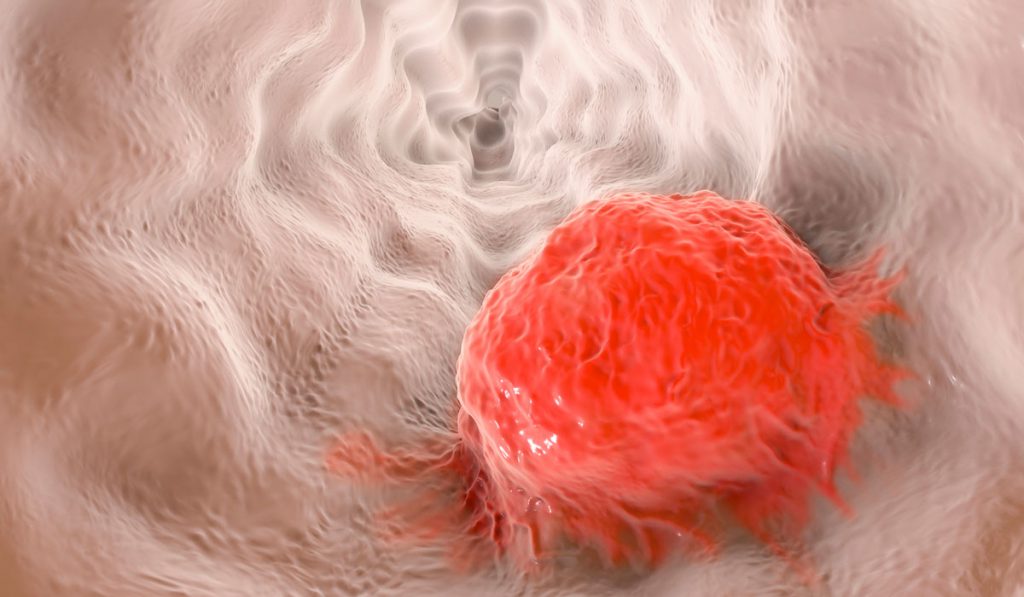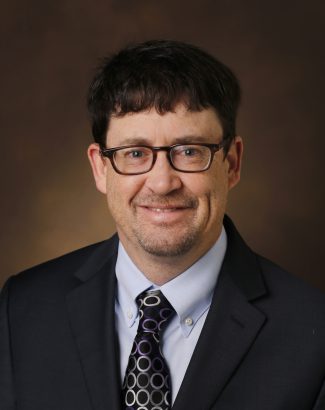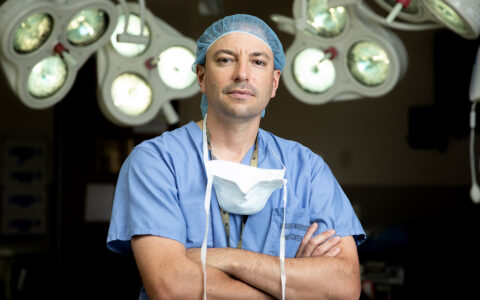Esophageal cancer is relatively rare, with 17,650 new cases expected in the U.S. in 2019. It is, however, one of the top ten leading causes of cancer-related death, with 85 percent of patients experiencing recurrence and ultimately succumbing to their disease. Standard management of localized and operable esophageal cancer per the National Comprehensive Cancer Network guidelines involves neoadjuvant systemic chemotherapy in combination with external beam radiation therapy for a total of five to six weeks.
A new ECOG-ACRIN phase II/III trial funded by the National Cancer Institute will study the usefulness of adding immunotherapies (nivolumab and ipilimumab) to standard of care in patients with locally advanced esophageal and gastroesophageal junction adenocarcinoma who are to undergo surgery. Vanderbilt-Ingram Cancer Center (VICC) is one of four sites that will open the protocol and pilot safety testing before the trial.
“50 percent of patients walk in the door with disease that has metastasized.”
“The mortality rate for adenocarcinoma of the esophagus is approximately 85 percent; 50 percent of patients walk in the door with disease that has metastasized,” said Michael Gibson, M.D., associate professor of medicine, the trial’s principal investigator at Vanderbilt, and the national study co-chair. “Immunotherapy with checkpoint inhibitors, such as those used to treat melanoma, may remove the brake on the patient’s immune system and enable it to attack tumor cells.”
Strategies to Improve Survival
Approximately 60 percent of patients with esophageal adenocarcinoma have lymph node involvement at the time of diagnosis. Even after administration of chemotherapy in combination with daily radiation, roughly one-third of patients have involved lymph nodes at the time of surgery. These patients have a five-year survival rate of approximately 25 percent as compared to approximately 45 percent in patients with no lymph node involvement. It is these lymph-node-positive patients that are at highest risk for disease recurrence.
In an attempt to improve survival in these patients with residual lymph node involvement, the trial will explore the impact of adding immunotherapy as adjuvant therapy. To further stimulate the patient’s immune system, immunotherapy also will be given before surgery.
One theory is that adjuvant immunotherapy activity may be augmented when a component of immunotherapy is administered while the tumor is still in the body. The study design includes the administration of nivolumab to half the patients during the neoadjuvant chemoradiation period. This could generate a greater proportion of pathologic complete responses among patients receiving neoadjuvant nivolumab by the time of their surgery. Pre-operative nivolumab may also prime the immune system to better recognize residual tumor in the adjuvant setting.
A Multidisciplinary Focus on Esophageal Cancer
Gibson says Vanderbilt is uniquely positioned to be a pilot and principal site for the trial. “It’s much easier to implement and carry out complex clinical trials when you have a team drawn from multiple modalities,” Gibson said. “At VICC, we have a comprehensive and expert group of physicians, scientists and clinical research staff that collaborate. Thoracic surgeons, medical oncologists, radiation oncologists, basic and translational scientists work together to bring novel treatments to our patients.”
In addition to the study of metastatic disease, the team is planning a study that will treat newly diagnosed esophageal and stomach cancer with radiotherapy to enhance the activity of immunotherapy.
“Everything we’re doing has the capacity for translation,” Gibson said. “These trials form the glue in the development of new treatments for these deadly cancers.”





